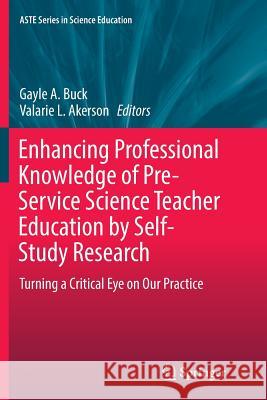Enhancing Professional Knowledge of Pre-Service Science Teacher Education by Self-Study Research: Turning a Critical Eye on Our Practice » książka
topmenu
Enhancing Professional Knowledge of Pre-Service Science Teacher Education by Self-Study Research: Turning a Critical Eye on Our Practice
ISBN-13: 9783319812878 / Angielski / Miękka / 2018 / 467 str.
Enhancing Professional Knowledge of Pre-Service Science Teacher Education by Self-Study Research: Turning a Critical Eye on Our Practice
ISBN-13: 9783319812878 / Angielski / Miękka / 2018 / 467 str.
cena 402,53
(netto: 383,36 VAT: 5%)
Najniższa cena z 30 dni: 385,52
(netto: 383,36 VAT: 5%)
Najniższa cena z 30 dni: 385,52
Termin realizacji zamówienia:
ok. 16-18 dni roboczych.
ok. 16-18 dni roboczych.
Darmowa dostawa!
Kategorie:
Kategorie BISAC:
Wydawca:
Springer
Seria wydawnicza:
Język:
Angielski
ISBN-13:
9783319812878
Rok wydania:
2018
Wydanie:
Softcover Repri
Ilość stron:
467
Waga:
0.66 kg
Wymiary:
23.39 x 15.6 x 2.46
Oprawa:
Miękka
Wolumenów:
01
Dodatkowe informacje:
Wydanie ilustrowane











